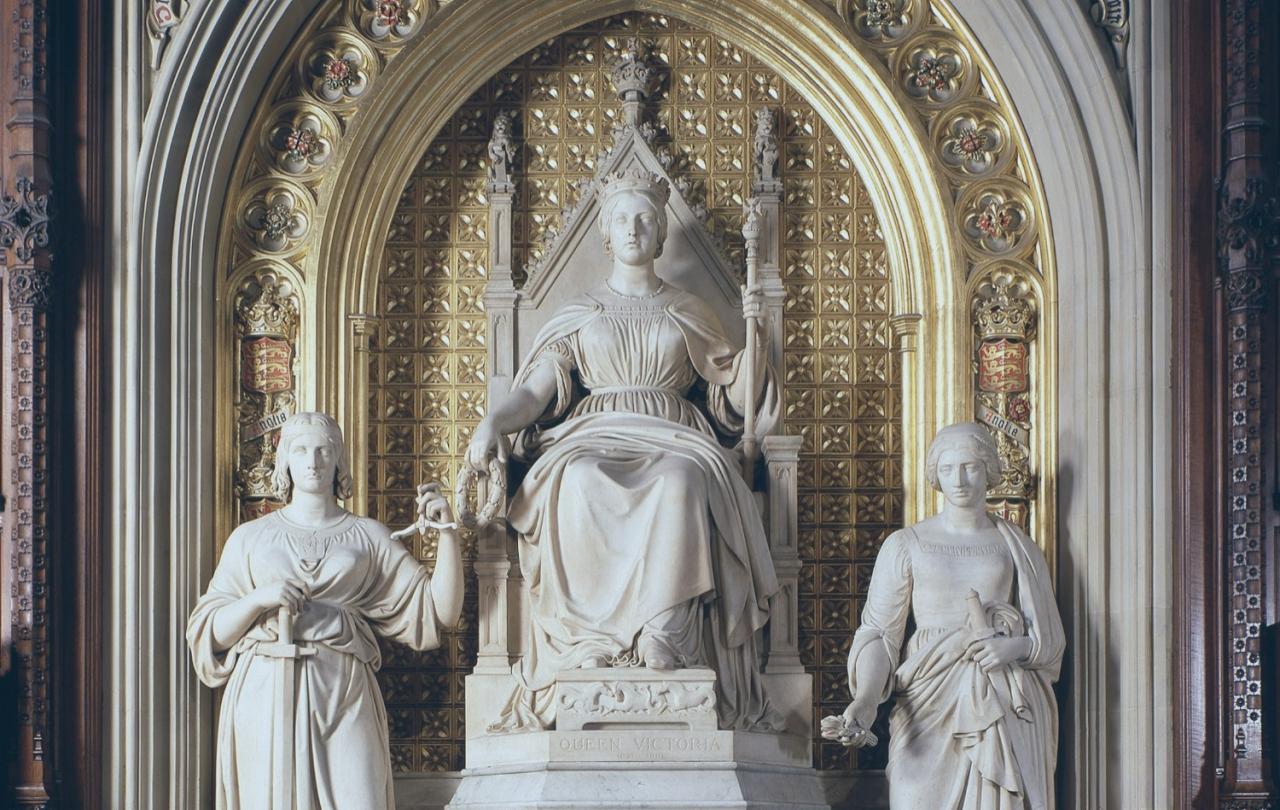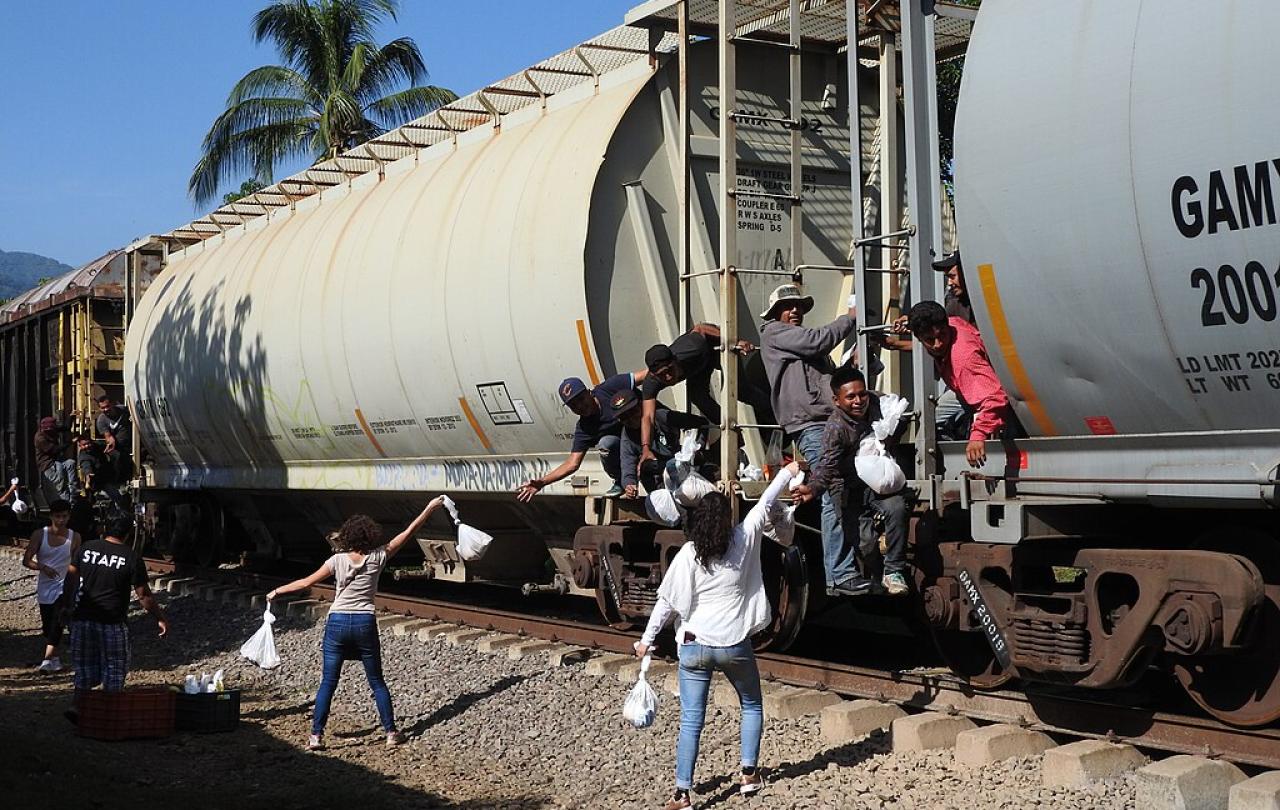
In the Prince’s Chamber of the House of Lords sits a mighty marble statue of Queen Victoria.
She is sitting on her throne, holding both her sceptre and her crown, hemmed in on either side by two figures who represent justice and mercy. Her expression is strong, her posture is powerful, she is visibly assured and confident in her identity and role as Queen.
You can view the statue, in all its glory, on Parliament's website.
To say it’s striking is an understatement. It’s simply unmissable.
And yet, the most remarkable thing about this statue is not that it exists, there are nine similar figures in London alone. No, what’s so notable about this statue is where it exists, and why.
The story is an admittedly enchanting one. Prince Albert commissioned this particular statue of his wife, and had it precisely placed so that it greeted her head-on as she stepped out of her Robing Room and made her way to the Chamber of the Lords. It had one purpose and one purpose only - to give Queen Victoria courage when she was likely to need it most.
And that’s exactly where it still sits, its colour may be long faded, but its impact is not. It sits as somewhat of an alter to this historic romance, but more profoundly, as an ode to something that is notably overlooked in our culture: it is an ode to the practice of encouragement.
Psychologist and Professor Y Joel Wong powerfully defines encouragement as
‘The expression of affirmation through language or other symbolic representations to instil courage, perseverance, confidence, inspiration, or hope in a person(s) within the context of addressing a challenging situation or realizing a potential’.
When defined this way, it is clear to see just how integral such expressions of affirmation are to the cultivation of a flourishing life. And yet, Prof. Wong also observes just how underestimated, understudied, and undervalued the art of encouragement is. The vast majority of research that has attempted to theorize encouragement places its focus exclusively on early childhood development, implying that they believe it to be an essential need that humans simply outgrow. And yet, while such an idea floats around on an academic level, it’s likely that we each feel a sense that this is simply not congruent with personal experiences. The delight we feel upon learning the story behind Queen Victoria’s statue in the House of Lords is surely evidence that this kind of encouragement from another person is something that we continue to crave well into adulthood.
I would suggest that the underestimation of the practice of encouragement may be a subtle symptom of the individualistic culture we now find ourselves in.
What individualism may starve us of
The political and social philosophy of individualism can be dated back to the late 1700s, primarily as a reaction to the French Revolution. Since then, it has been re-framed and refined countless times, perhaps most influentially by Emile Durkheim in 1893 and Max Weber in 1947. Each philosopher foresaw a society that looks strikingly like ours, here in the 21st Century. A society which expects individuals to grow, learn and flourish independently of each other, which values self-definition, self-sufficiency, and self-actualisation, which ultimately encourages a self-centred and goal-oriented life.
In his 1841 essay, Self-Reliance, Ralph Waldo Emerson famously wrote that ‘nothing is at last sacred but the integrity of your own mind’. According to this school of thought, the rights and convictions of the individual supersede the duties of the community, and the Western world is arguably steeped in this very notion (of course, there are exceptions to the rule - the NHS and welfare system being two prime examples).
To condemn individualism completely seems to me to be too simple of a judgment; the notion that one is responsible for their own actions undergirds much of our justice system, our right to question institutions and power structures is integral, while the freedom that each person has (in theory) to pursue their own passions and convictions is a wonderful thing. And yet, it could be argued that the emphasis it places on individual success feeds competition and comparison, which is consequently starving us of empowerment and encouragement.
Perhaps this is one reason the theorizing of encouragement is notably neglected in so much psychological study.
Further to that, maybe this is why stories such as Prince Albert commissioning a statue of Queen Victoria, or Marilyn Monroe famously sitting front row at every one of Ella Fitzgerald’s shows in a notoriously segregated club, or the Barcelonian crowd at the 1992 Olympics who erupted in applause as Team GB’s 400m runner, Derek Redmond, weepingly limped across the finish line with a freshly-torn hamstring, affect us so profoundly. Because encouragement is profoundly absent from our culture - and we miss it.
Christianity and the emotional life
Christianity, as you can imagine, has an awful lot to say about the emotional life of humanity and the key ingredients involved in human flourishing. Although it stresses the individuality and dignity of every single human being, while also emphasising the agency (or ‘free will’) of every person, that is largely where its relationship with individualism comes to a halt. To untangle the inherent value of community from Christianity is a mean feat indeed.
In his book, Unapologetic: Why, Despite Everything, Christianity Can Still Make Surprising Emotional Sense, Francis Spufford writes that Christianity is supposed to make us
‘full of passion for each other’s minds, hearts, souls, and bodies’ because it is in this curiosity and passion that we ‘recreate as best we can some fraction of the absolute and inimitable love behind everything.’
This certainly doesn’t leave much room for an exclusively self-actualising existence.
If Francis Spufford is correct, if Christianity’s worldview has even a little sense to it, then it’s possible that our success is directly linked to the success of others. Individual victories, communal victories, collective losses, personal losses – they are, to a point, inseparable from each other. If this is the case, it is worth suggesting that the art and the impact of encouragement may well be worthy of far more of our attention.





